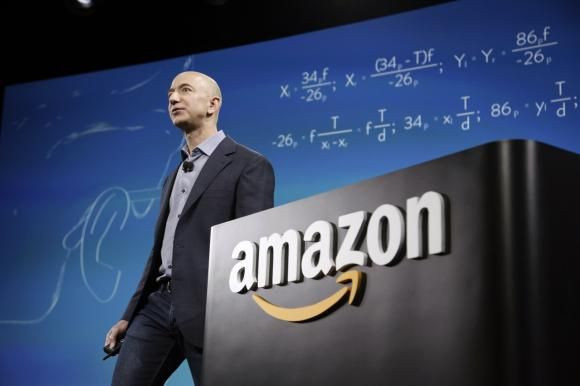Amazon's Drone Delivery Dreams Drive Congressional Donations, Hiring Up In DC

Skeptics who worried that Amazon CEO Jeff Bezos’ purchase of the Washington Post represented a D.C. power play won't be soothed by the news that Amazon is pouring more money into lobbying efforts as the mega-retailer continues to grow in scope and ambition.
Amazon.com Inc. (NASDAQ:AMZN) has retained the powerful lobbying firm of Akin Gump Strauss Hauer & Feld and continues to poach new hires in the D.C. area, most recently Cisco aide Steve Hartell, who will direct Amazon's congressional relations, Politico reported this week. Amazon also bought new office space near the nation's capital and has beefed up political spending with $174,000 in congressional donations and $1.9 million in lobbying expenses during the first half of 2014.
“Everybody knows Amazon’s size and power in retail is enormous, so it really should be no surprise their political influence is, too,” Sheila Krumholz, executive director of the nonprofit Center for Responsive Politics, told Politico. “They don’t seem hesitant to use all the opportunities they have at their disposal.”
For the moment, it appears that Amazon’s latest political courtships are largely in the service of its delivery-by-drone ambitions. According to Politico, the Seattle-based company has been “particularly active at the FAA,” most recently pressing the agency for permission to test its drone delivery system, a step it reportedly insisted was necessary for the company to provide its customers with “continuing innovation.” Multiple reports have indicated that Amazon hired Akin Gump Strauss Hauer & Feld specifically to challenge federal prohibitions on the commercial use of drones.
Amazon’s drone program isn't the only area of its business that could benefit from the favor of government agencies. Those who have followed the tensions between Amazon and the "Big 5" publishing houses -- the publishers have accused Amazon of operating a monopoly, while Amazon has accused them of thwarting competition -- will recall that in 2012, the U.S. Department of Justice ordered the publishers to pay $69 million to settle an antitrust lawsuit that accused the publishers of conspiring (along with Apple) to drive down the price of ebooks. At the time, critics decried what many saw as evidence that the DOJ was in Amazon’s pocket.
Any potential coziness between Amazon and D.C. policymakers would be a major cause of concern for traditional publishers, especially as they begin to renegotiate their contracts with Amazon, another term of the price-fixing settlement. When Hachette -- the first of the publishers to be called to the table -- resisted the undisclosed terms of an initial proposal, Amazon responded by removing the preorder button on forthcoming Hachette titles and imposing artificial shipping delays, in addition to raising prices on some titles. Several months in to the negotiation process, Amazon and Hachette haven't come to any significant agreements, and Simon & Schuster has recently started discussions with Amazon about what is believed to be its own contract with the retailer. Given the degree of contentiousness thus far and the extraordinarily high stakes -- the future of the publishing industry at large -- it doesn’t seem unreasonable to imagine that the DOJ and/or the Federal Trade Commission (which last month sued Amazon for allegedly allowing millions of dollars of purchases made by children via its app store) will at some point become involved.
But at least one Hachette author -- Richard Russo, who's also president of the Author’s Guild, which has been intensely critical of Amazon -- believes that the DOJ wouldn't have as easy a time siding with Amazon as it did in 2012.
“DOJ’s reasoning in siding with Amazon against Apple and the major publishers was based on the fact that Amazon was driving prices lower, which they argued was in the interest of consumers,” Russo told International Business Times in June, while the Amazon-Hachette dispute was dominating headlines. “I don’t see how it’s possible to make the argument anymore.”
But Russo also pointed out that Amazon appeared to have gotten a confidence boost from somewhere. “In the past, they’ve backed down when confronted. Like most bullies, they’d rather intimidate than actually fight. It’s possible that they’re just emboldened by their previous victory [the price-fixing settlement], but you can’t help but wonder if they have been assured in advance they have nothing to fear from the government.”
As Politico noted, Hachette hasn’t at this time indicated it is pursuing any antitrust avenues in its dispute with Amazon. The publisher declined Politico’s request to comment for the story about Amazon’s political alliances.
© Copyright IBTimes 2025. All rights reserved.






















